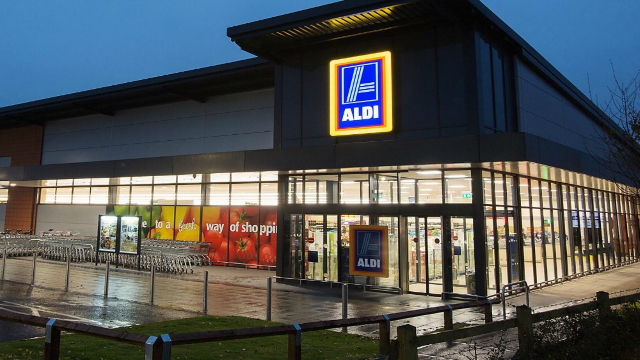
Aldi Australia has identified a number of high risk areas in its supply chain including in local fresh produce and internationally-produced goods such as cocoa, coffee and tea.
On Friday, the discount grocery became the first Australian supermarket to share its Modern Slavery Statement, revealing that the prevalence of modern slavery in developed countries like Australia is higher than previously understood.
The move by Aldi follows the introduction of The Modern Slavery Act 2018, which came into effect in Australia on January 1 last year. The Act requires entities with an annual revenue of over $100 million to report annually on the risks of modern slavery in their operations and supply chains, and the actions they will take to address those risks.
Locally, Aldi Australia said its fresh produce supply chain, including meat processing, has been flagged as an area at risk of modern slavery as per expert organisation, the Global Slavery Index (GSI).
The retailer also found that the use of labour intensive contractor services, such as trolley collectors and cleaning services present operational risks in the domestic business.
In Aldi’s global supply chain, both non-food and food products produced in high risks countries, such as Myanmar and Bangladesh, were reported to present modern slavery risk.
High risk food products include seafood, nuts, cocoa, coffee and tea, while textiles, shoes, housewares, electronics and toy production present the highest risks in non-food.
Speaking exclusively to Inside FMCG, Aldi’s corporate responsibility director Daniel Baker said that understanding where the biggest risks lie is key to establishing a pathway forward and eradicating modern slavery.
“We understand it can occur anywhere, at any time, in Australia or abroad. We must remain vigilant,” Baker said.
“In 2019, we carried out a total of 473 Aldi Social Assessments ASAs with our most common finding being the non-transparency of factory conditions, where breaches of local laws or our social standards may be hidden. This is often identified through inconsistent records being kept at the production facility, for example in relation to wages and working hours.”
Baker said the business is already working with business partners to remediate any indicators of modern slavery.
“We believe detecting modern slavery is an indication that the monitoring we are undertaking is effective,” Baker told Inside FMCG.
“For example, in a production facility it was detected that temporary migrant workers’ original documents, such as passports, were being held by the facility’s management. Remediation in this case included the return of the original documentation to the workers and the installation of personal lockers for each worker to safely store their personal documentation. Continual and unannounced checks are an important part of our ongoing monitoring in this space.”
Aldi Australia’s business partners that are sourcing high-risk products from countries considered to be at higher risk of human rights violations must adhere to its Social Monitoring Program (SMP).
The SMP includes training on all aspects of supply chain standards and third-party audits by accredited specialists to ensure its Social Standards in Production are being upheld.
A number of other preventative measures have been put in place at Aldi including an independent alert line which offers business partners and employees an opportunity to anonymously raise concerns at any hour of the day.
“As much as we would like there to be quick-fixes, we can’t take shortcuts. We understand eradicating modern slavery in the industry will be better achieved by engaging partners. Through regular monitoring, dialogue and action, we coach our suppliers and build strong relationships to collectively improve working conditions,” Baker said.
Many retailers are now making their supplier list public in an effort to be more transparent, but Baker told Inside FMCG there are no immediate plans to do so at Aldi Australia.
“We’re proud of our long-term relationships with our growing network of over 1000 business partners. We work closely with these individuals to uphold labour rights and we will continue to do so. For contractual reasons, we have no immediate intention to publicly list our suppliers.”
Aldi Australia operates under the Aldi South Group’s Code of Conduct, which includes the Aldi Stores Social Standards and Aldi’s Human Rights Policy Statement. Last year, the retailer published its first Child Labour Policy to provide education and training on the issue.
In an effort to ensure best practice in its operations and supply chain, the retailer is supporting a number of initiatives including Growcom’s Fair Farms which helps local fresh produce suppliers implement social and ethical employment standards.
The supermarket giant has partnered with the Centre for Child Rights and Corporate Social Responsibility (CCR CSR), which works with businesses to overcome issues of child labour; and has committed to the UN’s International Labour Organisation (ILO) “Call to Action in the Garment Industry” to support manufacturers through the economic disruption from the Covid-19 pandemic.
“Forced labour and the exploitation of vulnerable workers are abuses of basic human rights and have no place in our business or supply chain. Preventing modern slavery from happening is a global, complex issue. As an international company with global supply chains, we embrace our responsibility to understand labour exploitation and to address it effectively,” Aldi Australia CEO Tom Daunt said.





